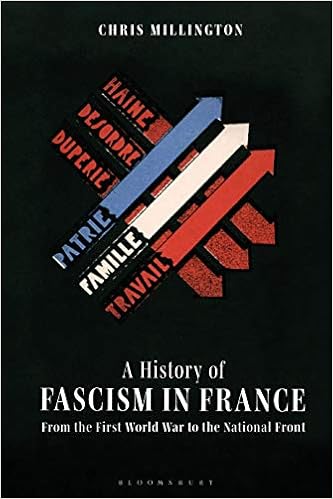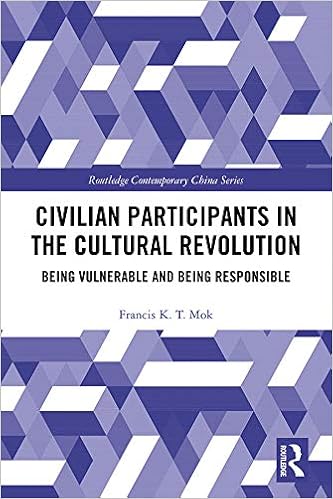Welcome to the Library’s virtual New Book Shelf. Here we will present new titles for you to browse and check out. Titles listed here will be monographs published in the current year. If you see a title you would like to borrow, please click the link below the item and sign in with your Hawk ID and Password to request a loan.
Queenship in Early Modern Europe

Offering a fascinating survey of European queenship from 1500-1800, with each chapter beginning with a discussion of the archetypal queens of Western, Central, Northern, and Eastern Europe, Charles Beem explores the particular nature of the regional forms and functions of queenship – including consorts, queens regnant, dowagers and female regents – while interrogating our understanding of the dynamic operations of queenship as a transnational phenomenon in European history. Incorporating detailed discussions of gender and material culture, this book encourages both instructors and student readers to engage in meaningful further research on queenship.
This is an excellent overview of an exciting area of historical research and is the perfect companion for undergraduate and postgraduate students of History with an interest in queens and queenship.
https://search.lib.uiowa.edu/permalink/f/7nh330/01IOWA_ALMA21727816440002771
Yarsan of Iran, Socio-Political Changes and Migrations

This book examines how socio-political surroundings have affected the evolution of Yārsāni religious thought and why the Yārsāni religious belief, despite its fundamental disagreement with Islamic tenets, has been affiliated with Islam. It also considers the historical context and socio-religious milieu in which the Yārsāni belief appropriates religious forces to survive, how Yārsānis experience their religion in Islamic society, and what differences are significant in their lived experiences. The author explores how the experience of worship influences real life for the Yārsānis from the perspectives of sociology, behaviorism, content analysis, cultural studies and ethnography in Iran and diaspora with focus on Sweden. Yārsāni followers became known as those who “don’t tell secrets,” primarily because they were not allowed to promote and advertise their religion in public, but recently have started to reveal their religion, especially in social media. This book discovers the transformation of this religion, and in particular in which context an individual can change the content of religion, and bring about new ideas regarding religion and belief.
https://search.lib.uiowa.edu/permalink/f/7nh330/01IOWA_ALMA51769169050002771
History of Fascism in France: From the First World War to the National Front

A History of Fascism in France explores the origins, development, and action of fascism and extreme right and fascist organisations in France since the First World War. Synthesizing decades of scholarship, it is the first book in any language to trace the full story of French fascism from the First World War to the modern National Front, via the interwar years, the Vichy regime and the collapse of the French Empire. Chris Millington unpicks why this extremist political phenomenon has, at times, found such fervent and widespread support among the French people.
The book chronologically surveys fascism in France whilst contextualizing this within the broader European and colonial frameworks that are so significant to the subject. Concluding with a useful historiographical chapter that brings together all the previously explored aspects of fascism in France, A History of Fascism in France is a crucial volume for all students of European fascism and France in the 20th century.
https://search.lib.uiowa.edu/permalink/f/7nh330/01IOWA_ALMA21727816500002771
Keepers of Memory: The Holocaust and Transgenerational Identity

Keepers of Memory answers the question of how descendants of Holocaust survivors remember the Holocaust, the event that preceded their birth but has shaped their lives. Through personal stories and in-depth interviews, Rich examines the complicated relationship between history, truth, and memory. Keepers of Memory explores topics that include how stories of survival become stories of either empowerment or trauma for the descending generations, career choice as a form of commemoration, religion, and family life. Ultimately, this work paints a compelling picture of the promises and pitfalls of memory and points to implications for memory and commemoration in the coming generations.
https://search.lib.uiowa.edu/permalink/f/7nh330/01IOWA_ALMA21727817640002771
Civilian Participants in the Cultural Revolution

In the ten years of the Cultural Revolution, political persecutions, violation of rights, deprivation of freedom, violence and brutality were daily occurrences. Especially striking is the huge number of ordinary civilians who were involved in inflicting pain and suffering on their comrades, colleagues, friends, neighbors, and even family members. The large-scale and systematic form of violence and injustice that was witnessed differs from that in countries like Chile under military rule or South Africa during apartheid in that such acts were largely committed by ordinary people instead of officials in uniforms. Mok asks how we should assess the moral responsibility of these wrongdoers, if any, for the harm they did both voluntarily and involuntarily.
After the death of Chairman Mao, there was a trial of the Gang of Four, who were condemned as the chief perpetrators of the Cultural Revolution. Besides, tens of millions of officials and cadres who were wrongly accused and unfairly treated were subsequently cleared and reinstated under the new leadership. However, justice has not yet been fully done because no legal or political mechanism has ever been established for the massive number of civilian perpetrators to answer for all sorts of violence inflicted on other civilians, to make peace with their victims, and to make amends. The numerous civilians who participated need to come to terms with the people they wronged in those turbulent years. Justice in general and transitional justice in particular may still be pursued by taking the first steps to clarify and identify the moral burden and responsibility that may legitimately be ascribed to the various types of participant.
This book will be of interest to anyone who studies the Cultural Revolution of China, especially those who are concerned with the ethical dimension.
https://search.lib.uiowa.edu/permalink/f/7nh330/01IOWA_ALMA21727811280002771
Creating the Opium War: British Imperial Attitudes Towards China. 1792-1840

Creating the Opium War examines British imperial attitudes towards China during their early encounters from the Macartney embassy to the outbreak of the Opium War – a deeply consequential event which arguably reshaped relations between China and the West in the next century. It makes the first attempt to bring together the political history of Sino-western relations and the cultural studies of British representations of China, as a new way of explaining the origins of the conflict. The book focuses on a crucial period (1792–1840), which scholars such as Kitson and Markley have recently compared in importance to that of American and French Revolutions. By examining a wealth of primary materials, some in more detail than ever before, this study reveals how the idea of war against China was created out of changing British perceptions of the country.
https://search.lib.uiowa.edu/permalink/f/7nh330/01IOWA_ALMA21730508160002771
Zhou Enlai: The Last Perfect Revolutionary
![Zhou Enlai: The Last Perfect Revolutionary by [Gao Wenqian, Peter Rand, Lawrence R. Sullivan]](https://m.media-amazon.com/images/I/51XkY0rr2FL.jpg)
Zhou Enlai, the premier of the People’s Republic of China from 1949 until his death in 1976, is the last Communist political leader to be revered by the Chinese people. He is considered “a modern saint” who offered protection to his people during the Cultural Revolution; an admirable figure in an otherwise traumatic and bloody era. Works about Zhou in China are heavily censored, and every hint of criticism is removed — so when Gao Wenqian first published this groundbreaking, provocative biography in Hong Kong, it was immediately banned in the People’s Republic.
Using classified documents spirited out of China, Gao Wenqian offers an objective human portrait of the real Zhou, a man who lived his life at the heart of Chinese politics for fifty years, who survived both the Long March and the Cultural Revolution not thanks to ideological or personal purity, but because he was artful, crafty, and politically supple. He may have had the looks of a matinee idol, and Nixon may have called him “the greatest statesman of our era,” but Zhou’s greatest gift was to survive, at almost any price, thanks to his acute understanding of where political power resided at any one time.
https://search.lib.uiowa.edu/permalink/f/7nh330/01IOWA_ALMA21479395780002771
Your Sons are at Your Service: Tunisia’s Missionaries of Jihad

Tunisia became one of the largest sources of foreign fighters for the Islamic State―even though the country stands out as a democratic bright spot of the Arab uprisings and despite the fact that it had very little history of terrorist violence within its borders prior to 2011. In Your Sons Are at Your Service, Aaron Y. Zelin uncovers the longer history of Tunisian involvement in the jihadi movement and offers an in-depth examination of the reasons why so many Tunisians became drawn to jihadism following the 2011 revolution.
Zelin highlights the longer-term causes that affected jihadi recruitment in Tunisia, including the prior history of Tunisians joining jihadi organizations and playing key roles in far-flung parts of the world over the past four decades. He contends that the jihadi group Ansar al-Sharia in Tunisia was able to take advantage of the universal prisoner amnesty, increased openness, and the lack of governmental policy toward it after the revolution. In turn, this provided space for greater recruitment and subsequent mobilization to fight abroad once the Tunisian government cracked down on the group in 2013. Zelin marshals cutting-edge empirical findings, extensive primary source research, and on-the-ground fieldwork, including a variety of documents in Arabic going as far back as the 1980s and interviews with Ansar al-Sharia members and Tunisian fighters returning from Syria. The first book on the history of the Tunisian jihadi movement, Your Sons Are at Your Service is a meticulously researched account that challenges simplified views of jihadism’s appeal and success.
https://search.lib.uiowa.edu/permalink/f/7nh330/01IOWA_ALMA21732804830002771
Fabric of Immortality: ancestral power, performance, and agency in Egungun artistry
Fabric of Immortality focuses on Egungun masking, a unique cultural tradition practiced by the Yoruba of West Africa and their descendants in the African Diaspora, particularly in Brazil, Cuba, the Dominican Republic, Barbados, Trinidad, Venezuela and the United States of America.
Egungun performances provide a vehicle and arena for dialogic reflections and celebrations, parody and play, and communication between the living and the departed, the seen and the unseen, upon which the stability of the human community and the universe is dependent. A great many varieties of these masks celebrate the guild of hunters and warriors, legendary heroes and heroines and founding ancestors including the legion of divinities straddling the landscape of Yoruba universe.
Majority of the scholarly literatures on Egungun have focused on its spectacular and glamourous aspects, using the methodological approaches prevalent within the disciplines of art history, religion, theater, dance, performance studies, and anthropology. Because masquerading is a universal human experience, there’s always a tendency to seek commonalities outside the immediate cultural environment under investigation. This invariably creates a tendency to impose alien theoretical and methodological theories that may lead to “dubious universals” in order to unravel key elements of the fascinating tradition. All too frequently, these approaches fail to fully grasp the complex nature of Egungun, which is at once compelling, evocative, and awe inspiring. While Egungun is a true reflection of the distinct features of the cultural values, religious beliefs, and social practices of the Yoruba, it cannot be rigidly separated into strict disciplinary categories reflective of the Western production of knowledge. No matter the level of sophistication of these alien theoretical models, they invariably end up distorting the realities of the lived experiences implicit in the Egungun cultural and aesthetic imagination. This present study departs from such approaches by drawing heavily on Yoruba oral genres in order to engage fully with both the spectacular and phenomenological aspects of Egungun—a compelling multifaceted experience involving rituals, drama, entertainment, magic, history, performance, and celebratory aspects.
https://search.lib.uiowa.edu/permalink/f/7nh330/01IOWA_ALMA21732821070002771
Songs of Nature
![Songs of Nature: On Paintings by Cao Jun (The Collected Writings of John Sallis) by [John Sallis]](https://m.media-amazon.com/images/I/51cnSCe03SL.jpg)
This latest philosophical text by John Sallis is inspired by the work of contemporary Chinese painter Cao Jun. It carries out a series of philosophical reflections on nature, art, and music by taking up Cao Jun’s art and thought, with a focus on questions of the elemental. Sallis’s reflections are not a matter of simply relating art works to philosophical thought, as theoretical insights and developments run throughout Cao Jun’s writings and inform many of his artistic works. Sallis maintains abundant points of contact with Chinese philosophical traditions but also with Western philosophy. In these reflections on art, Sallis poses a critique of mimesis and considers the relation of painting to music. He affirms his conviction that the artist must always turn to nature, especially as reflections on the earth and sky delimit the scale and place of what is human. Full-color illustrations enhance this provocative and penetrating text.
https://search.lib.uiowa.edu/permalink/f/7nh330/01IOWA_ALMA21768532390002771